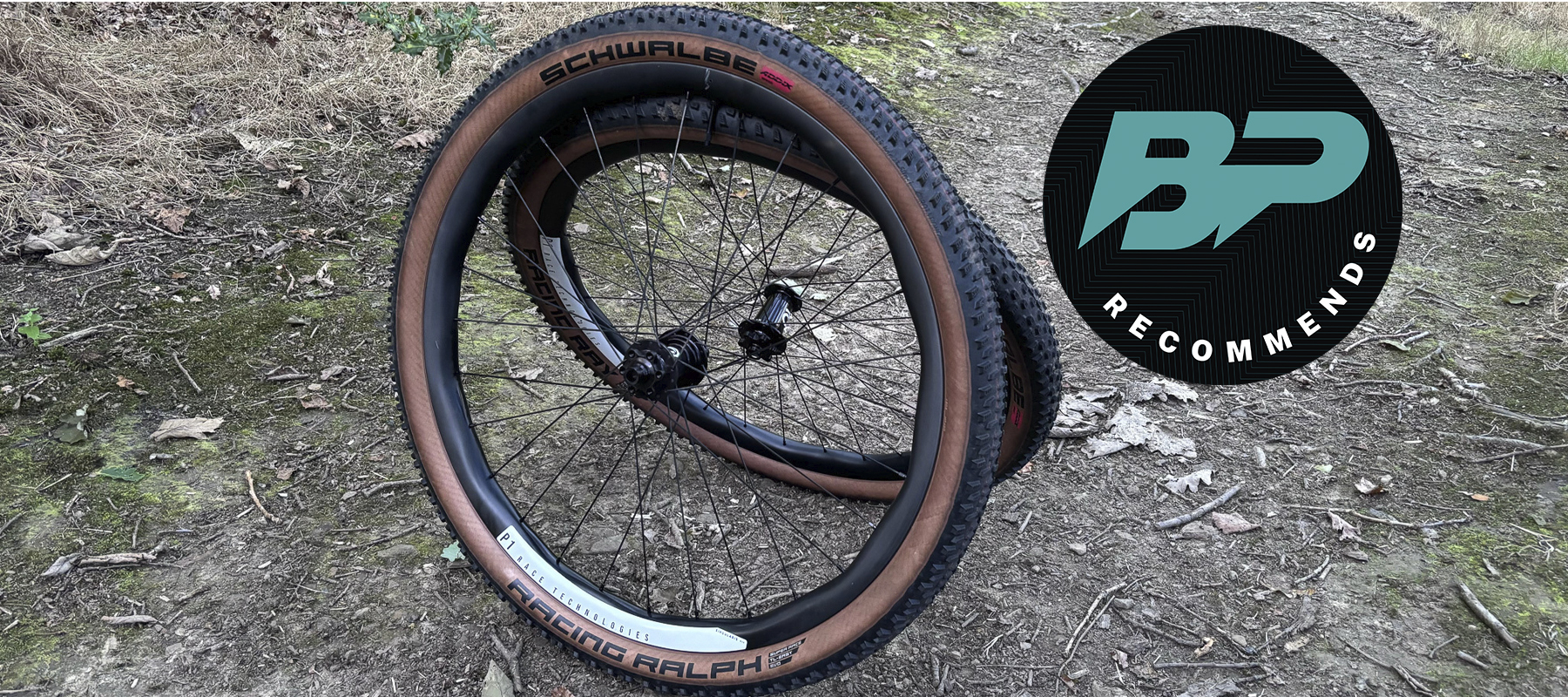Bike Perfect Verdict
The Singularis M30 seems like a confusing wheel at first. With middling numbers on paper, it hides a blistering performance-orientated wheelset that is seemingly bombproof on and off the race track. It is expensive, as you would expect, for a true top-tier product, but it is comparable to other non-gold medal-winning products from mainstream brands.
Pros
- +
High-quality finish
- +
Easy to set up tubeless
- +
Sprint happy stiffness levels
- +
Feel faster than the middling weight would suggest
- +
Proven race pedigree
Cons
- -
Relatively heavy in this build option
- -
High price
Why trust BikePerfect
It's been hard to miss the exploits of Tom Pidcock and Pauline Ferrand Prevot, who both won XCO Gold in the Paris Olympic games. But it wasn't just fancy Pinarello Dogma XC race bikes they shared. They both used the latest Singularis M30 rims in two of the most entertaining bike races at the Olympic games in years.
We have featured the Ineos team riders' Pinarello Dogma XC bike before, but you'd be forgiven for passing the wheels by compared to the rest of the build. They look very understated, but don't let that fool you. Singularis is an offshoot of Princeton Wheelworks, which has been making super high-end race wheels since 2012, using lots of technology and engineering from outside the classic bike industry pool of knowledge to great effect.
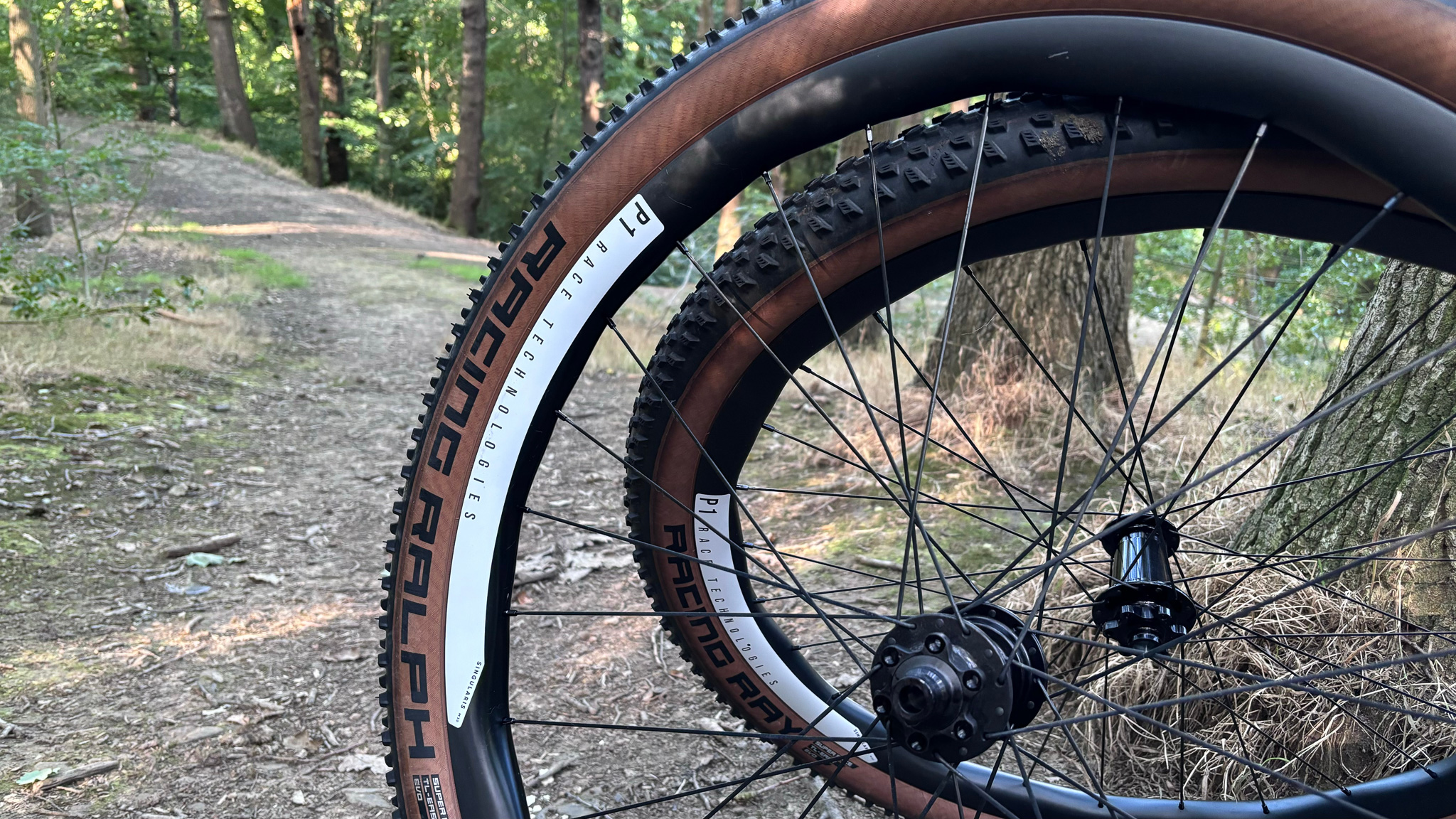
Features and design
The first thing you will notice about the Singularis M30 wheel is its wavey rim, which varies in size from 32 to 36mm. This is an evolution of the Sine design they use on all their road wheels – where the rim depth changes between the spokes to give the aero benefits of a deeper section but the stability and handling of a shallower rim. That's great for skinnier wheels, but the key benefit for XC riders is the increased stiffness that's given by improving the bracing angles for the spokes to ensure an even tension across the wheel. The spoke holes follow the wavy nature of the rim in an offset pattern, which helps with getting an even high spoke tension – that not only increases stiffness, it also should make for a more robust wheel.
The M30 wheels are 29er only, with a hookless 30mm internal and 36mm external width. This is the sweet spot currently, with racers across the board opting for wider, more resilient rubber to cope with the ever-increasing technical nature of XC racing. The other key feature of the SIngularis rim is its undrilled rim bed. Basically, it doesn't have any holes drilled in it from the tire side for the nipples to go through, which means you do not need to fit a rim tape to set up tubeless. That's not its only benefit, but I will get on to that in a bit. I was a little confused as to how the whee;s are actually built – with no obvious way to feed the nipples through the rim. I have been told they use a guide and a strong magnet in a similar fashion to Campagnolo and Fulcrum which sounds like a faff to me, but it does create a very neat setup – though I imagine replacing a spoke down the line could be a testing experience.
The hubs are the suitably fancy Industry Nine Hydras, with a near-instant pick-up of 0.52 degrees, laced to the rims with 28 Alpina steel spokes with external nipples. Though nice, they are actually the cheaper of the two hub and spoke options. If you want the same set-up as the current XCO gold medal holders, there's a superlight NonPlus hub, and Berd composite spoke version available, too.
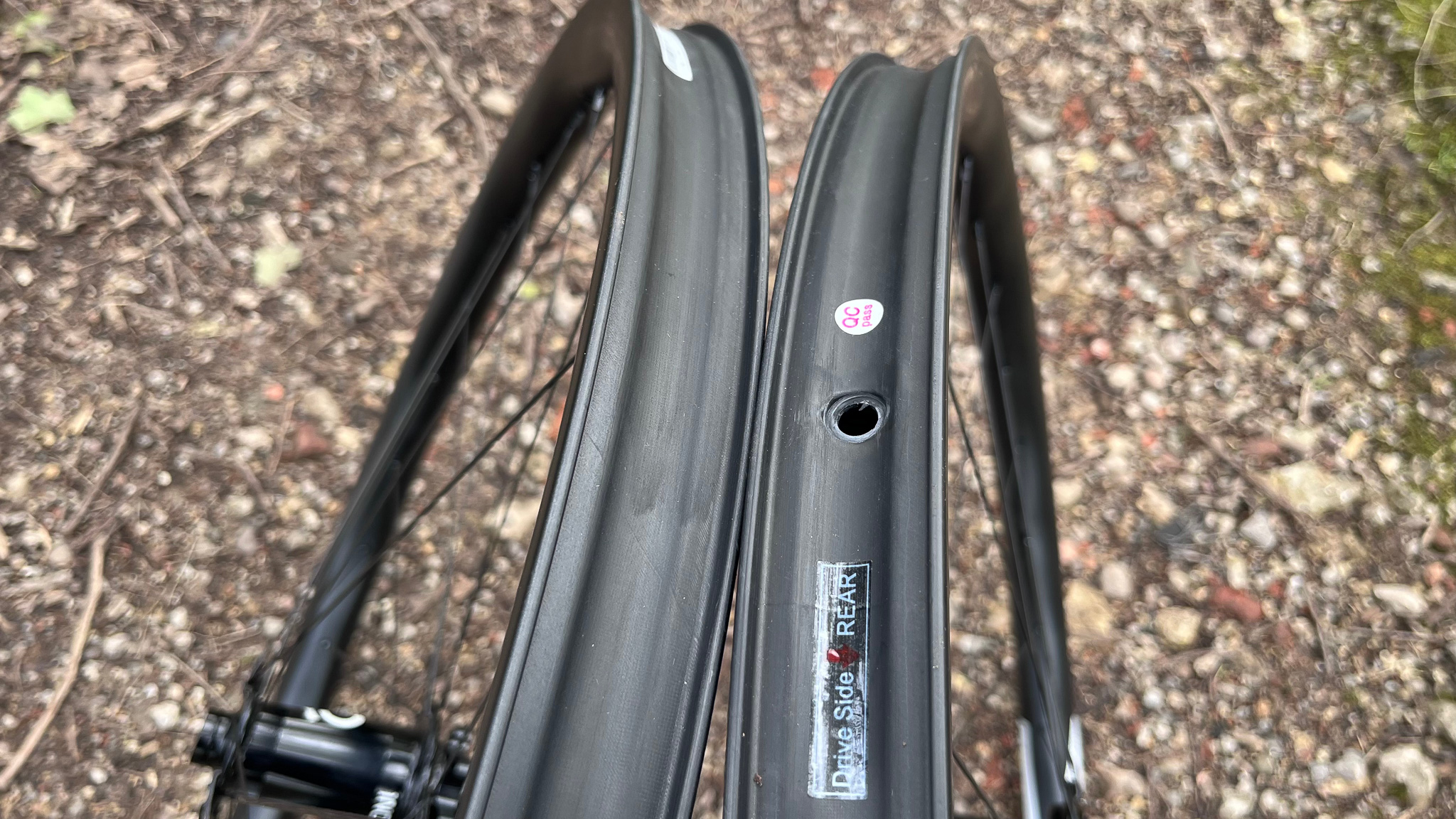
The wheels have been designed as a no-compromise race product for two of the fastest riders on the planet for the Olympics, both with very slight builds, which made the relatively high weight of the M30s a bit surprising. Now, calling them heavy would be unfair, but their weight of 1,563g (with valves) was a bit of a shock. Now, I'm not a weight weenie, and I tend to largely agree with Ernesto Colnago's sentiment that weight is only really of concern to a greengrocer, but when you compare these on paper to rivals with similar fast hubs and 30mm wide internal rims, they are at the heavy end of the spectrum.
For example, the DT Swiss XMC 1200 and Roval Control wheels that I used in back-to-back comparison tests weigh 1,541 and 1,480 grams, respectively, and the SL variant of the Roval is nearly 200g lighter at 1,320g. The top-end version of the Singularis M30, with its fancy German weight weenie hubs and Berd Dyneema string spokes that would drop the weight down by approximately 200 grams, though actual weights are hard to come by, but as you'd expect, that comes at a hefty price increase of $1,000 on the rear wheel alone (full pricing not currently available).
Being a top-end wheel, they of course, carry a top-end price tag of $1,800 / £1,999 / € TBC, but it is comparative to its competitors, with the DT XMC 1200 coming in at $2,983 / £2,099.98 and Specialized’s range-topping Roval Control SL at $2,500 / £2,200 / €2,000. Where the pricing becomes an issue to me is when you compare it to wheels like the Roval Control, which is lighter but also $450 / £849 cheaper at $1,350 / £1,150 / €1,300, or the Hunt Proven carbon race XC wheels at $1,099 / £899 / €1,169
The designers said that the M30 rims are the first ones used by Pidcock and Prevot that haven't broken (across all brands they tested, apparently), which would explain the higher-than-expected weight. They also have a lifetime warranty, though details on how this works and whether or not it covers accidental damage on the trail aren't clear from their website.
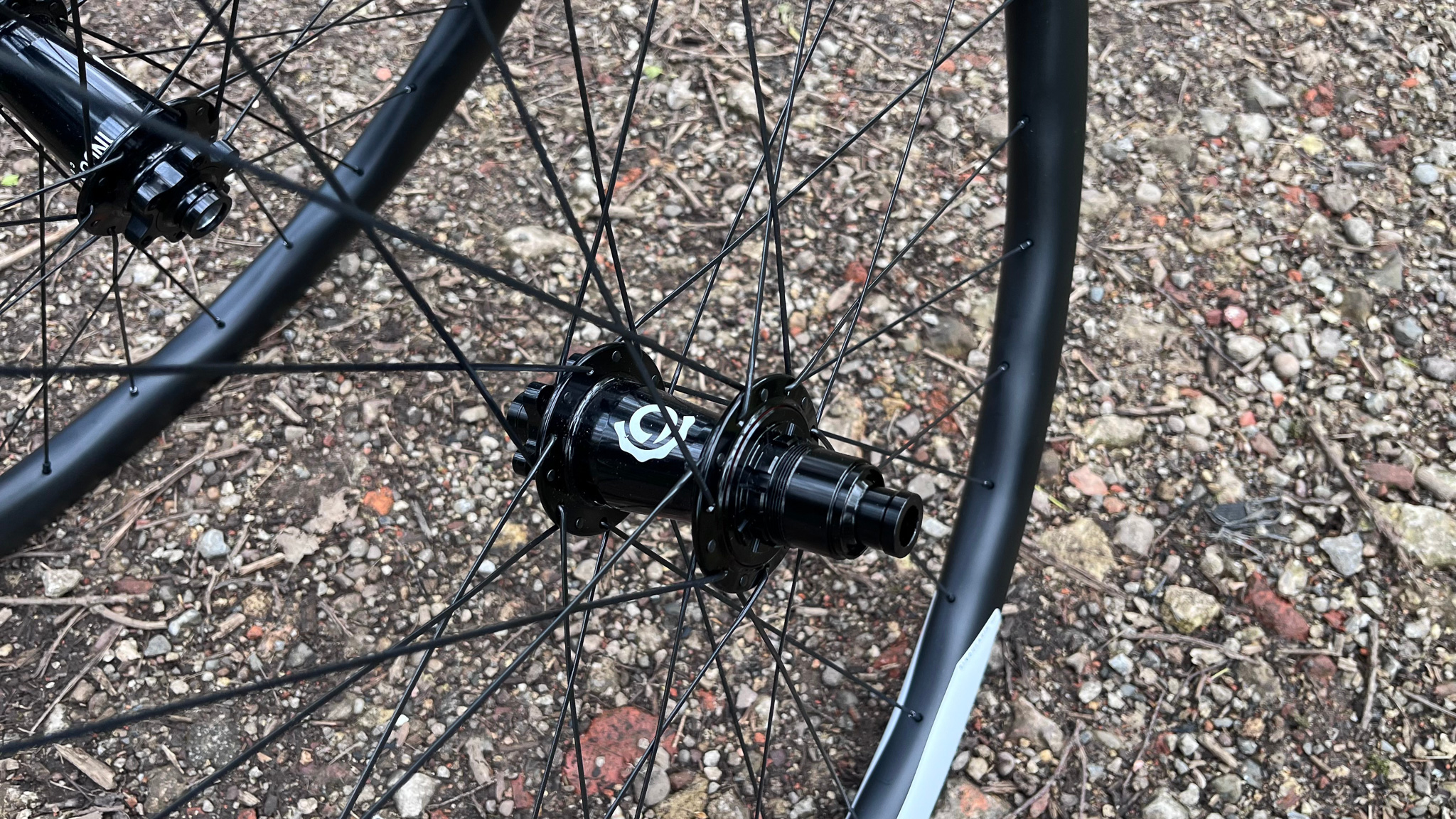
Performance
Tire fitting is the first thing you notice with a new pair of wheels, and these were perfect, with zero issues fitting my Schwalbe Racing Ralph and Racing Ray tires. Both inflated easily, with no burping or pressure loss during testing. Valves are supplied, and though they worked fine during testing, they aren't anything special. At this price, I'd like to see something better, like a high-volume Fillmore or similar.
I was lucky enough to have a Cervelo ZFS-5 to ride and once fitted, the first thing I noticed was the extra speed and sense of urgency the M30s gave the bike. I rode the Roval Control wheels first to give me a benchmark, followed by the M30, and the difference in feel was much bigger than I expected, especially when considering the SIngularis wheel's extra 80 grams of weight. Some of that Is down to the faster pickup from the I9 rear hub, and I'm sure some is down to a high spoke tension, too, but my overriding feeling was that there was some definite engineering witchcraft going on with the rim design.
It's quite a hard sensation to pinpoint, but somehow, they feel much faster and stiffer, but still offering plenty of grip and feedback. I don't like super stiff wheels in general, and I find they really ruin how a bike rides and make it hard to get a feel for grip and what your tires are doing on the trail, so these were a real surprise to me. Stiff and taught, but with enough trail feedback to tell you what's happening. Info is limited on the wheels website, which is refreshingly low on marketing hyperbole. I think the lack of drilling in the rim bed must really help with the stability and strength, as well as the offset spoke drilling and wavy supportive design, which translates into a very fast feeling robust wheel. Princeton worked very closely with the team of riders, coaches, and mechanics from Ineos in development, and it seems to have paid off with a seriously fast yet controllable wheel.
They have a reassuringly solid feel to them, which would suggest they are also more than a race-day-only product. Some race-biased products I've ridden in the past need constant care and attention and are often too delicate for real-world use by anyone over 65kgs, but not so here. It's clear that the designers have actually paid attention to the evolving world of XCO racing, which now includes plenty of serious trail features, big drops, and large jumps, and these feel more than up to the task.
I did plenty of back-to-back testing with the P1 Singularis M30s, swapping between my long-term DT Swiss XMC 1200 and the Roval Controls, and each time, the feeling of increased speed and responsiveness was there despite minimal differences in weight, which is quite a feat. Most high-end products come with a healthy dose of marketing that can be hard to cut through, but it's almost the exact opposite here. With little fanfare, bar winning the two biggest XCO races on the calendar, and an underwhelming spec sheet but with a genuine and noticeable difference in speed on the trail to other similar wheels I've used.
The M30s are comfortable across a wide range of terrain and trail conditions, too. Most of my riding was on rocky, pretty tech trails, and the extra sharpness and accuracy helped when I was pushing hard. However, they still had enough comfort, were easy to control, and did not accelerate fatigue. There are better options out there if you want a more damped, comfortable ride, for sure, but for a hard-hitting race wheel, these are surprisingly forgiving and offer an exhilarating ride.
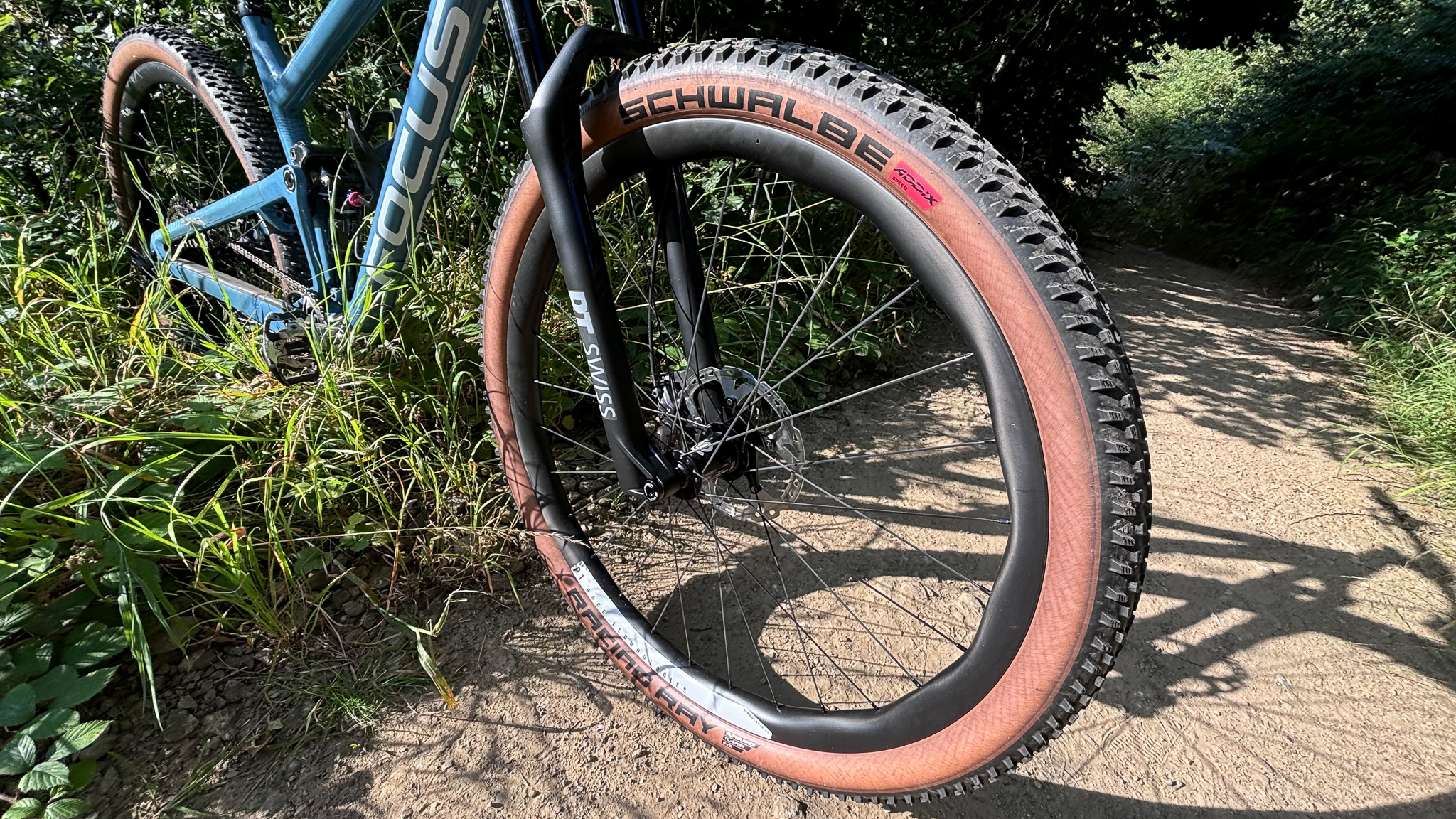
Verdict
The P1 Singularis M30s are hard to judge, as they aren't the lightest, and there are plenty of better-value options out there, but the speed and accuracy I felt with these over other suitably fancy wheelsets were a big surprise.
The price is high, but they do offer a tangible benefit on the trail. The tech developed with the team at Ineos clearly has had some benefit, though whether or not that's worth it depends on the size of your wallet.
Overall, they are a much better race proposition than their average weight would suggest, and if they are good enough for Pidcock and Prevot, then there must be something special going on.
| Ride Feel | Very fast, stiff but with enough trail feedback and a definite difference in speed on all but the chunkiest trails | ★★★★★ |
| Power transfer | Well built and high spoke tension combined with a stiff rim lead to a very fast wheelset | ★★★★★ |
| Durability | All signs point to these lasting a long time | ★★★★★ |
| Value for money | Expensive but comparable to similar top-end offerings, though there are better value options out there | ★★★ |
Tech specs: P1 Singularis M30 XC wheels
- Price: $1,800 / £1,999 / €TBC
- Weight: 724g front, 839g rear, 1,563g total with valves fitted
- Sizes: 29er only
- Material: Carbon
- Internal Width: 30mm
- External width: 36mm
- Rim depth: 32 to 36mm
- Hubs: Industry Nine Hydra front and rear 6 bolt
- Freehub engagement: 10 degrees

Neal has been riding bikes of all persuasions for over 20 years and has had a go at racing most of them to a pretty average level across the board. From town center criteriums to the Megavalanche and pretty much everything in between. Neal has worked in the bicycle industry his entire working life, from starting out as a Saturday lad at the local bike shop to working for global brands in a variety of roles; he has built an in-depth knowledge and love of all things tech. Based in Sheffield, UK, he can be found riding the incredible local trails on a wide variety of bikes whenever he can
